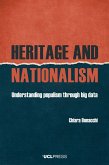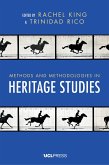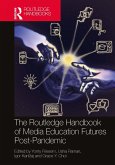Preservation of natural and cultural heritage is often said to be something that is done for the future, or on behalf of future generations, but the precise relationship of such practices to the future is rarely reflected upon. Heritage Futures draws on research undertaken over four years by an interdisciplinary, international team of 16 researchers and more than 25 partner organisations to explore the role of heritage and heritage-like practices in building future worlds.
Engaging broad themes such as diversity, transformation, profusion and uncertainty, Heritage Futures aims to understand how a range of conservation and preservation practices across a number of countries assemble and resource different kinds of futures, and the possibilities that emerge from such collaborative research for alternative approaches to heritage in the Anthropocene. Case studies include the cryopreservation of endangered DNA in frozen zoos, nuclear waste management, seed biobanking, landscape rewilding, social history collecting, space messaging, endangered language documentation, built and natural heritage management, domestic keeping and discarding practices, and world heritage site management.
Praise for Heritage Futures
'[A book] Likely [to] attract two main groups of readers. One consists of students, researchers, and heritage practitioners looking for inspiration or a gateway to understand current intersections between the fields of (critical) heritage studies and futurology. It will work well for this purpose, as it raises vital questions and points to avenues for collaboration that may help care for the future - not just for the remains of the past in the future. ...A second group would be researchers looking for advice on how to write up a big project. The book represents a successful example of how to weave together a large and highly diverse research programme into a single publication.'
Norwegian Archaeological Review
'The book offers is a fresh perspective on heritage studies by turning the debate on its head and flipping the gaze from the past to the future'
International Journal of Heritage Studies
'I suspect this book will prove to be a revolutionary addition to the field of heritage studies, flipping the gaze from the past to the future. Heritage Futures reveals the deep uncertainties and precarities that shape both everyday and political life today: accumulation and waste, care and hope, the natural and the toxic. It represents a uniquely impressive intellectual and empirical roadmap for both anticipating and questioning future trajectories, and the strange, unfamiliar places heritage will take us.'
Tim Winter, University of Western Australia
Engaging broad themes such as diversity, transformation, profusion and uncertainty, Heritage Futures aims to understand how a range of conservation and preservation practices across a number of countries assemble and resource different kinds of futures, and the possibilities that emerge from such collaborative research for alternative approaches to heritage in the Anthropocene. Case studies include the cryopreservation of endangered DNA in frozen zoos, nuclear waste management, seed biobanking, landscape rewilding, social history collecting, space messaging, endangered language documentation, built and natural heritage management, domestic keeping and discarding practices, and world heritage site management.
Praise for Heritage Futures
'[A book] Likely [to] attract two main groups of readers. One consists of students, researchers, and heritage practitioners looking for inspiration or a gateway to understand current intersections between the fields of (critical) heritage studies and futurology. It will work well for this purpose, as it raises vital questions and points to avenues for collaboration that may help care for the future - not just for the remains of the past in the future. ...A second group would be researchers looking for advice on how to write up a big project. The book represents a successful example of how to weave together a large and highly diverse research programme into a single publication.'
Norwegian Archaeological Review
'The book offers is a fresh perspective on heritage studies by turning the debate on its head and flipping the gaze from the past to the future'
International Journal of Heritage Studies
'I suspect this book will prove to be a revolutionary addition to the field of heritage studies, flipping the gaze from the past to the future. Heritage Futures reveals the deep uncertainties and precarities that shape both everyday and political life today: accumulation and waste, care and hope, the natural and the toxic. It represents a uniquely impressive intellectual and empirical roadmap for both anticipating and questioning future trajectories, and the strange, unfamiliar places heritage will take us.'
Tim Winter, University of Western Australia
Dieser Download kann aus rechtlichen Gründen nur mit Rechnungsadresse in A, D ausgeliefert werden.









